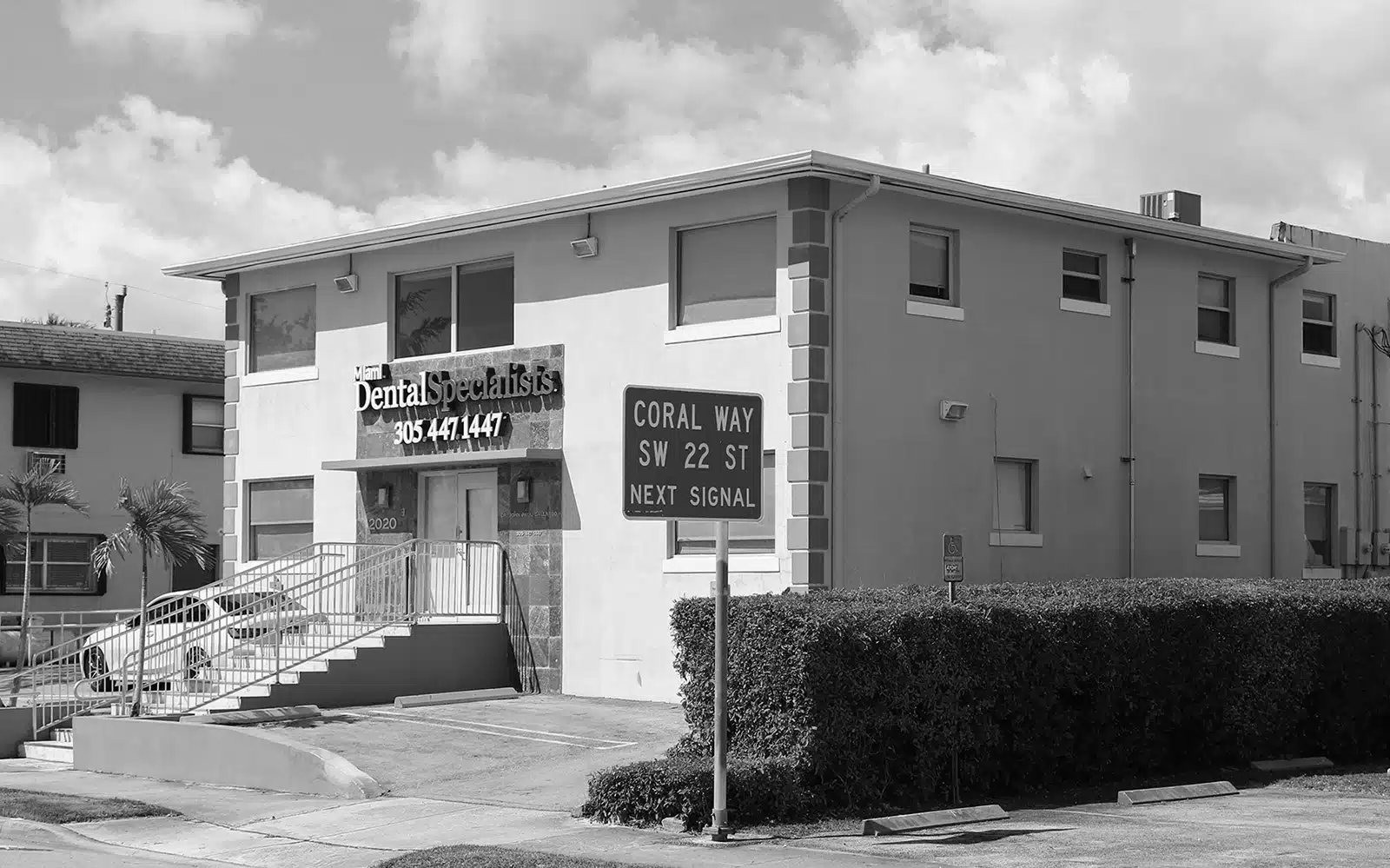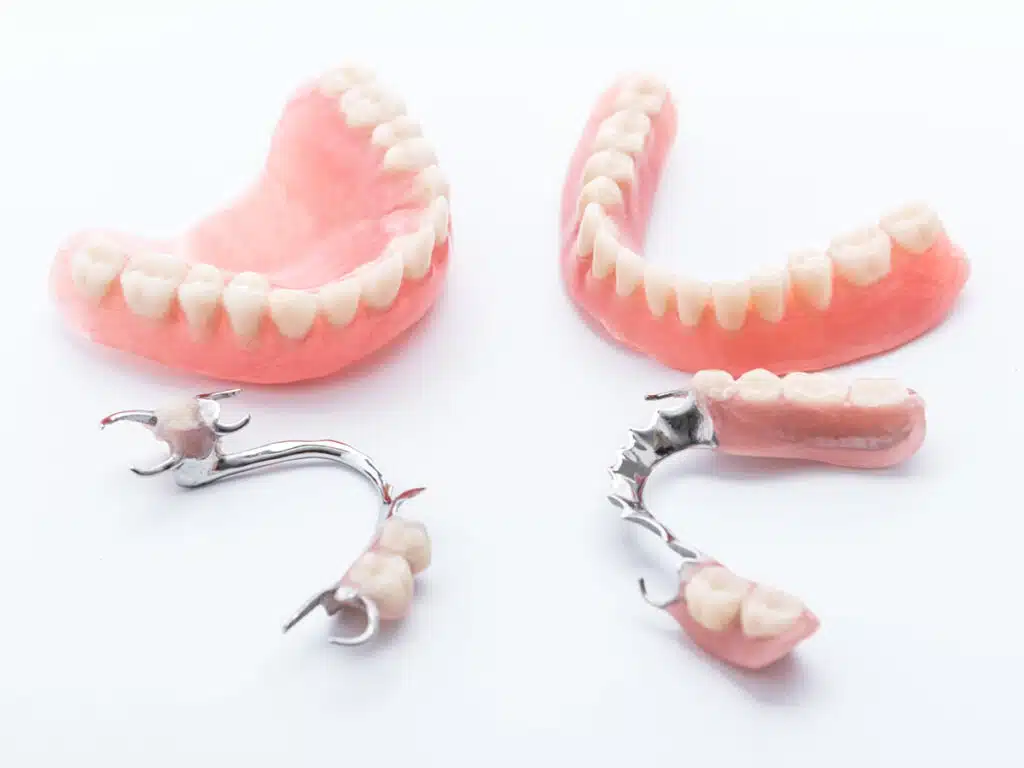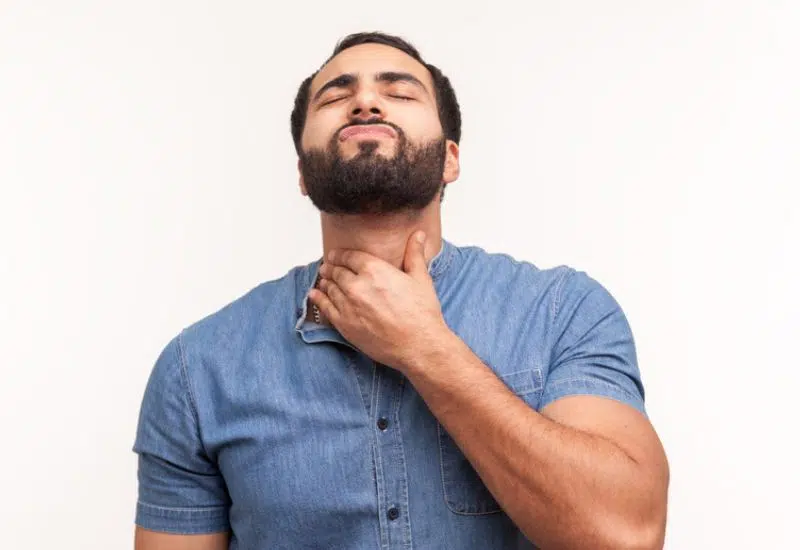
Have you ever wondered what might happen if someone accidentally swallowed their dentures? While it might sound far-fetched, this rare but serious incident can occur, and knowing what to do if it happens could make all the difference.
Dental prosthetics are designed to restore smiles, but in unfortunate situations, they can pose health risks. Whether you’re wearing full dentures, partials, or temporary replacements, it’s crucial to understand how to handle potential complications. Read on to uncover the truth about swallowed dentures and how to stay safe.
Is It Possible to Swallow Your Dentures?
Yes, it is possible to swallow your dentures, although it’s rare. This typically occurs with removable or impacted dentures that become loose or are not fitted properly. These foreign body aspiration incidents are especially common due to maxillofacial trauma or complications during general anesthesia, which can also increase the risk. When a dental prosthesis becomes dislodged and ends up in the mouth without the wearer noticing, it may be accidentally ingested or even aspirated into the lungs. Immediate medical evaluation is essential to prevent more serious complications (such as perforation of the pharynx or tracheo-oesophageal fistula).
Cases of Swallowed Dentures
Adults are much less likely to swallow foreign objects than children, according to a 2012 review published by Deutsches Ärzteblatt, but it does happen.
On the list of items that an adult might swallow accidentally, dentures were third, accounting for up to 18 percent of case reports. Swallowed dentures are a rare enough occurrence that they tend to get some attention from the medical community when a patient does swallow them.
For example, in 2009, The Lancet published a brief case study of a woman in her 50s with a history of schizophrenia and depression. The woman swallowed her dentures while eating breakfast one day. Her medical team used imaging to monitor the progression of the dentures through her digestive tract until they passed through her system completely.
Another incident of swallowed dentures occurred in a very elderly man. The man was a resident at an assisted living home, and the staff at the home didn’t realize the elderly patient had swallowed his partial dentures. An X-ray of the side and front of his throat showed the dentures lodged in the esophagus.
While some people are able to pass their dentures without incident, in some cases, the results are much more tragic. A man in England died from internal bleeding several years after he swallowed his dentures. The man’s medical team wasn’t aware that he had swallowed the dentures back in 2010. Over the years, he lost a significant amount of weight and wasn’t able to eat. In 2013, he began coughing up blood and was admitted to the hospital, where he died in surgery.
What Happens If You Swallow a False Tooth?
Accidental denture ingestion is more common than many people realize, especially in older adults or individuals with neurological or psychological conditions. In many cases, swallowed dentures travel through the gastrointestinal tract and exit the body naturally within 10 days.
However, depending on the shape, size, and material of the dental prosthesis, particularly acrylic dentures, the situation can quickly escalate into a medical emergency.
If the denture becomes lodged or sharp edges press against intestinal walls, it can result in serious complications such as bowel obstruction or small bowel perforation.
In such cases, surgical intervention may be necessary to retrieve the object and repair internal damage. A 2004 study from the Journal of the Royal Society of Medicine reported a 46-year-old man who experienced coughing, fever, and difficulty speaking after unknowingly swallowing a denture.
The object could not be located via standard chest X-ray and was only found using rigid oesophagoscopy, a procedure involving a camera passed down the throat. These scenarios highlight why timely medical attention is critical when a dental appliance goes missing from the mouth.
What to Do if You Swallow Your Dentures
If you suspect accidental denture ingestion, the first and most important step is to treat the situation as a medical emergency. Time is critical, especially if the absent denture plate cannot be located or confirmed as passed. Even if you aren’t experiencing immediate symptoms, complications can develop rapidly. You should avoid eating or drinking and seek emergency care as soon as possible.
Doctors may perform a gastrointestinal endoscopy to determine the location of the denture. Depending on where it’s found and whether it’s causing a blockage or tissue damage, surgeons might recommend endoscopic removal or, in more severe cases, surgical removal. These methods allow for careful extraction of the foreign body with minimal risk to the surrounding tissues. Delaying treatment can lead to escalating damage, including infection or internal bleeding.
Accidental ingestion of dental prosthetics should always be taken seriously. The quicker the foreign body ingestion is addressed, the better the outcome. Modern medical imaging and minimally invasive tools like gastrointestinal endoscopy have made it much easier for surgeons to locate and extract dentures, significantly improving recovery times and reducing complications.

So, Are Dental Implants Better Than Dentures?
While dentures have long been a standard in restorative dentistry, dental implants offer a more durable and stable solution. Unlike removable dentures that can slip or become dislodged, implants are anchored securely into the jawbone, functioning much like natural teeth. This stability not only restores your ability to chew and speak confidently but also helps preserve bone health over time.
Dental restorations like implants are less likely to lead to complications such as accidental swallowing. In fact, specialists in otolaryngology and oral surgery often recommend implants for patients who have experienced issues with traditional prosthetics. Choosing implants may minimize the risk of future problems and provide a more permanent, worry-free solution to missing teeth.
Can a Dental Implant Become Loose?
Although dental implants are designed to be a long-term solution, there are rare cases where an implant can become loose. This may occur due to poor osseointegration, gum disease, or trauma to the jaw. It’s important to note that, unlike artificial teeth supported by removable dentures, implants are intended to function much like natural teeth and should remain firmly anchored.
If you notice movement or discomfort around your implant, it’s essential to see your dentist right away. A prompt evaluation can determine whether the issue lies with the implant itself or the surrounding dental restorations. In some cases, minor adjustments can resolve the issue, but others may require more extensive intervention to ensure the implant remains stable and functional.
Real Patient Results


* All patients are unique and individual results may vary.
Why Choose a Dental Implant Specialist?
When it comes to restoring your smile and avoiding complications like loose or swallowed dentures, choosing an experienced dental implant specialist is essential. A qualified professional ensures your treatment plan is tailored, safe, and long-lasting. Implant placement requires precision, and the success of the procedure largely depends on the surgeon’s skill and technology used.
Dr. John Paul Gallardo, DDS, PA, is South Florida’s leading periodontist and implant specialist. With over 25 years of experience, he is known for his advanced techniques and meticulous approach. At Gallardo Periodontics and Implant Dentistry, we offer cutting-edge technology and IV conscious sedation for a safe and comfortable experience. Call us at 305-447-1447 or visit our contact page to schedule a consultation.

